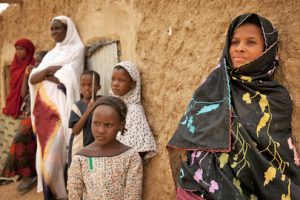
Mali
Region: Africa
-

Duration: February 2025 - January 2027
Budget: US$452,000
Implementing Agencies: UNDP (lead), WHO
In Mali, health and social protection challenges are compounded by over a decade of conflict and instability. Insecurity, inadequate healthcare, and a shortage of qualified personnel limit access to quality care, particularly for rural populations, pregnant women, children, and the elderly. Health insurance is insufficient for informal workers and low-income groups, while gaps in digital health infrastructure hinder disease surveillance and service delivery. Access to reproductive, obstetric, and mental health care remains restricted, disproportionately affecting vulnerable populations, including women, children, and internally displaced persons. Additionally, high levels of poverty and social inequality limit access to essential services like health, education, and social benefits, compounded by the absence of comprehensive social protection programmes such as social security and cash transfers.MORE -

Duration: February 2024 - December 2025
Budget: US$1,057,320
Implementing Agencies: UNESCO (lead), UNHCR
MORE -

Duration: April 2016 - March 2019
Budget: US$5,114,750
Implementing Agencies: UNDP (lead), UNFPA, FAO, UNICEF, WHO, ILO
Between January 2012 and June 2013, northern regions of Mali endured months of conflict. Vulnerable communities in Timbuctoo, Gao and Kidal bore the brunt of violent clashes between armed groups and Government troops as people were forced to flee their homes and young people feared recruitment by rebel groups. As a direct consequence of the conflict, the local economy has stagnated, livelihood opportunities are limited, and households struggle to purchase the food they need as prices continue to rise.MORE
